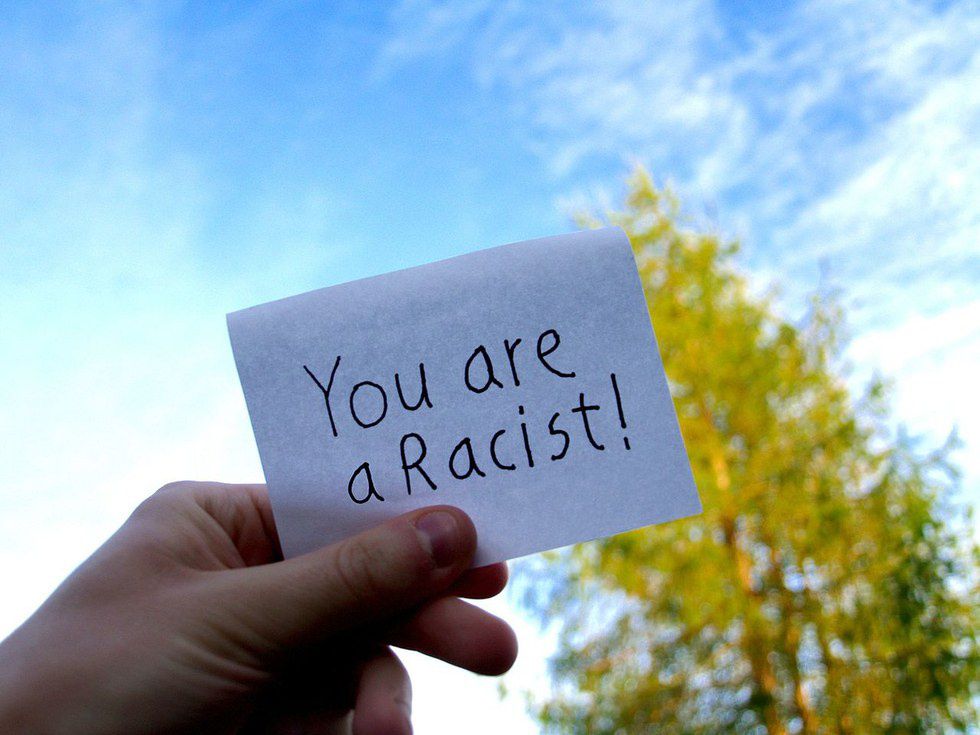Anyone who has kept up with current events knows what an asset social media has been in all aspects of the battle against social injustice. It has offered us the ability to share information as it happens and to watch the obstruction of justices from our screens in live time. It allows us to find our own perspective on world events with a few taps or clicks.And with all of it, we ca watch it connect us from around the world with others who share our ideals.
Lately, it has even allowed us to formally document incidents of prejudice in public venues.
Many know that the recent rise in incidents, such as the Victoria's Secret employee's show of racism, are nothing new. But what we have now is the ability to go live on Facebook and say "Okay, watch for yourself."
<span id="selection-marker-1" class="redactor-selection-marker"></span>
This type of public call-out requires corporations to become accountable. It takes something which would otherwise be ignored or brushed beneath the rug and turns it into a pivotal moment for a company to make a decision.
Do they or do they not condone bigotry?
And this is revolutionary. This spans far beyond the micro-aggressions of the retail environment and allows members of marginalized communities to present their reality for the world to see. It offers the opportunity for justice when lives have been taken. It allows those whose rights are being threatened to receive help, they desperately need.
But what happens when the discrimination you're greeted by can't be documented? The magic that is video proof of these events has also spawned an expectation of it -- leaving a large hole when you just don't get your smartphone out in time.
Whether as a consumer or an employee, this system actively works to suppress your narrative.
Your concerns may be belittled.
At a well-known coffee shop I once worked for, I encountered co-workers making violent and othering generalizations about a Muslim customer. After getting angry that I'd called them out for their prejudice behavior, once then refused to serve customers of color in protest.
That's right. They refused to serve non-white customers because someone accused them of holding prejudice thoughts against non-white customers.
Congratulations.
Your account may be presented as unreliable.
It is remarkably easy to contradict or question another person's account of an event. This is the main problem we are faced with when presenting ourselves as witnesses to or victims of racism. Visual proof is tangible. And in contrast, human memory is subjective and will absolutely be played upon in moments where you have nothing but your word. You are your own advocate and your memory is reliable. But there may simply be no way to prove that.
You may even experience retaliation.
While in this digital age, we now know that companies are often forced to react to racial discrimination. But even government officials are being offered a pass for their tasteless perspectives, despite proof on social media. As a consumer, you may be asked to not return to whichever business you have had your experience with. And while many companies have policies protecting employees against retaliation for coming forward in these types of events, I was still forced to leave my job of five years due to harassment, unsafe work conditions, and a general blase attitude towards something that is actively happening, just not to white people.
We have simply grown used to the concept of tangible evidence in our hands at all times. This is not always realistic. And while video proof has allowed gigantic communities of activists to come together and fight against racism and racial violence in all forms, it is also not required to have in order to speak up.
Your experience is valid. Your account is proof enough. Technology is radical, but your ability to make change is even more.








 The minimum wage is not a living wage.
StableDiffusion
The minimum wage is not a living wage.
StableDiffusion
 influential nations
StableDiffusion
influential nations
StableDiffusion












